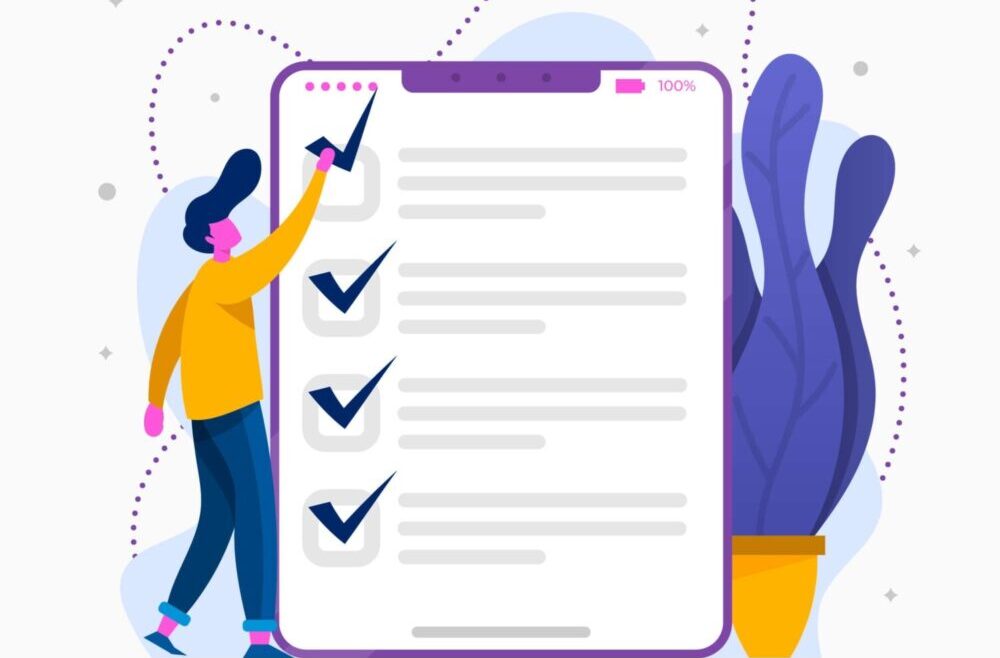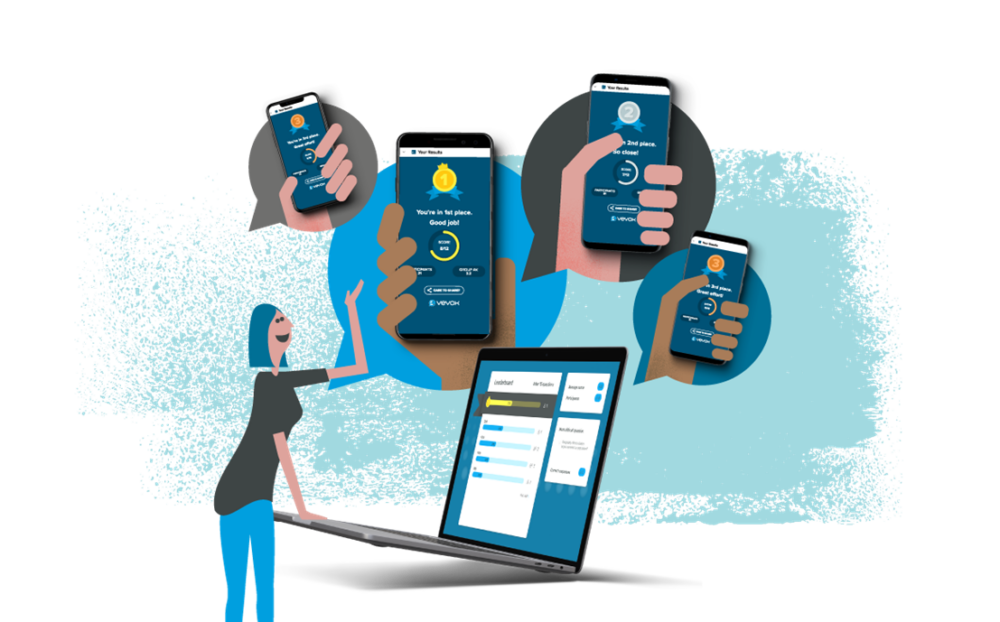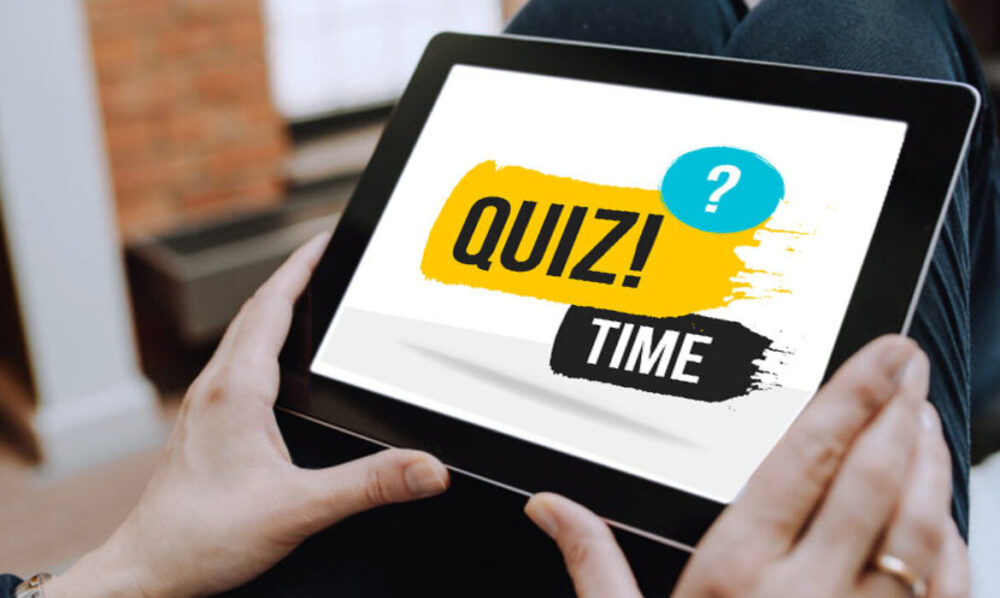Exams have been the cornerstone of education for centuries. While they might seem daunting, there’s an ace up your sleeve that you might not be fully utilizing: quizzes.
By adopting quizzes as your secret weapon, you can revolutionize your study approach and confidently conquer exams.
Dive into this guide to uncover proven strategies and methods that can help you attain exam dominance.
Quizzes vs. Other Study Methods

Source: mybookcave.com
Traditional study methods like reading, re-reading, and highlighting might feel productive, but when it comes to improving long-term retention, they can be as effective as a Gizmo without power. In comparison, quizzes force active recall and engagement, significantly improving long-term retention.
Research indicates that students who rely solely on passive review methods, like re-reading, tend to forget material quickly. On the other hand, those who incorporate quizzes in their study routine retain information longer and perform better in exams.
Moreover, quizzing provides immediate feedback, which reinforces correct information and corrects misunderstandings promptly.
Design Your Quiz Strategy
Not all quizzes are created equal. A strategic approach ensures that your quizzing sessions yield maximum benefits.
Timing
Timing is essential in maximizing the effectiveness of quizzes. Studies suggest that spacing out your quizzes, rather than cramming them all in one session, leads to better retention. This technique, known as spaced repetition, ensures that you revisit the material at optimal intervals.
To implement this, start by taking a quiz shortly after learning new material. Then, quiz yourself again after a day, then after a week, and so on. This method reinforces your memory and helps identify areas that need more attention.
Diversifying Question Formats
Just as in real exams, you’ll benefit from encountering a variety of question formats. Whether it’s multiple choice, short answer, true/false, or essay questions, each format tests your understanding in unique ways.
Multiple choice questions enhance recognition memory, while short answer questions promote recall. Essay questions demand a deeper understanding and the ability to integrate various pieces of information.
By diversifying your quiz questions, you’re not only preparing for different types of exam questions but also reinforcing your understanding from various angles.
The Art of Self-assessment

Source: joinassembly.com
Understanding your strengths and weaknesses is crucial. Quizzes offer a mirror into your knowledge, shedding light on areas that require extra attention.
Analyze Your Performance
Post-quiz analysis is as vital as taking the quiz itself. Reviewing your answers, especially the incorrect ones, aids in identifying patterns in your mistakes. Perhaps you constantly struggle with a particular topic or get tricked by certain question formats.
By diagnosing these trends, you can modify your study strategy accordingly. For instance, if you find that you often misinterpret questions, you might want to practice reading comprehension or spend extra time understanding the question wording.
Track Your Progress
Maintaining a record of your quiz scores over time is beneficial for several reasons. Firstly, it boosts motivation. Witnessing tangible improvements can be immensely motivating, reminding you of the fruits of your hard work.
Furthermore, tracking offers a holistic view of your progress. It can guide your revision strategy, helping you allocate time efficiently. For instance, if your scores are in a certain subject plateau, it might be time to employ different study techniques or seek additional resources.
Digital Quizzing Platforms

Source: vevox.com
Today, several digital platforms and apps, such as Quizlet, Anki, and Kahoot!, have transformed traditional quizzing methods. These platforms harness algorithms to optimize the spacing of questions, ensuring that you’re quizzed on topics you’re weak in more often than those you’re confident in.
Moreover, these platforms often come with built-in analytics. Such metrics offer valuable insights into your performance, highlighting areas that need improvement, and suggesting resources that can aid your understanding.
Gamified Learning Through Quizzes
Gamification, the application of game-design elements in non-game scenarios, has been making waves in education. Apps like Duolingo and Trivia Crack merge quizzing with gamified elements to make learning fun and engaging.
The competitive and rewarding nature of gamified quizzes can bolster motivation, ensuring you remain hooked to the learning process. These platforms often involve levels, points, badges, or leaderboards, transforming the mundane act of quizzing into an exhilarating challenge.
Collaborative Quizzing: The Group Advantage

Source: beekmanschool.org
While self-quizzing is beneficial, there’s much to gain from collaborative quizzing. Engage with peers to add a dynamic layer to your study sessions, introducing new perspectives and strategies.
The Benefits of Group Quizzes
Group quizzes foster a collective learning environment. They not only help identify individual and group weaknesses but also promote teamwork and communication skills.
It’s common for group members to approach questions differently, and these varied strategies can introduce novel problem-solving techniques to the group.
Moreover, explaining concepts to peers, a phenomenon known as the ‘teaching effect’, enhances your own understanding. It forces you to simplify complex topics, ensuring a deep grasp of the subject matter.
Structuring Productive Group Sessions
The key to effective group quizzes lies in structure. Begin by setting clear objectives for each session. Ensure that each participant contributes questions, fostering diverse content coverage.
Incorporate a mix of individual and collective answering rounds to benefit from both self-assessment and group discussions.
Also, designate a ‘review phase’ post-quizzing. Discussing and dissecting incorrect answers collectively can lead to profound insights and reinforce the right information.
Avoiding Common Pitfalls

Source: ct.counseling.org
Even the best strategies can falter if certain pitfalls are not avoided. Recognizing and sidestepping these common errors ensures that your quizzing efforts remain fruitful.
Overconfidence and Memory Decay
One common error is mistaking initial recognition for deep understanding. Just because you answered a question correctly once doesn’t mean the information is cemented in your memory. Over time, without reinforcement, memory decay sets in.
To counter this, avoid relying solely on recent quiz performance. Regularly revisit older quizzes to refresh your memory and ensure that past learnings aren’t forgotten.
Stagnation in Question Formats
While it’s tempting to stick to question formats you’re comfortable with, this can lead to stagnation. If you only practice multiple-choice questions, you might struggle with essay-type queries in the exam.
To ensure holistic preparation, regularly update your quiz bank with diverse question types. This not only guarantees comprehensive coverage but also prepares you for any curveballs the actual exam might throw.
Balance Quizzing with Other Revision Methods
While quizzing is a formidable tool, it’s essential to strike a balance with other revision methods to achieve a holistic study approach.
Integrate with Active Reading
Quizzing and active reading can be seamlessly integrated. For instance, as you read a chapter, take breaks to quiz yourself on the content you’ve just covered. This combination not only reinforces information but also ensures that your reading is focused and purposeful.
Incorporating techniques like the Feynman Technique, where you explain the content in your own words, can further solidify your understanding and prepare you for potential quiz or exam questions.
Use Mind Maps and Flashcards
Mind maps are excellent for visualizing complex topics and understanding interconnections. After creating a mind map, you can design quizzes based on its content. This approach ensures that you not only understand the broader picture but also the minute details.
Similarly, flashcards can complement your quizzing routine. While flashcards are great for quick memory checks, quizzes test your understanding in a more structured manner. Using them in tandem ensures both depth and breadth in your revision.
The Ideal Mindset for Effective Quizzing

Source: youworkforthem.com
Your mental approach to quizzing can make a significant difference in its effectiveness. Cultivating the right mindset ensures that you derive maximum benefits from your quizzing sessions.
Embrace Mistakes as Learning Opportunities
It’s natural to feel disheartened when you answer quiz questions incorrectly. However, shifting your perspective can be transformative. Instead of viewing mistakes as failures, see them as learning opportunities.
Each error highlights a gap in your understanding, guiding you on what to focus on next.
Consistency Over Intensity!
A common misconception is that marathon quizzing sessions are more beneficial. In reality, shorter, consistent quizzes spread over time are more effective than occasional intense sessions.
The key is regular engagement with the content, allowing for better retention and understanding.
The Role of Feedback in Quizzing

Source: freeed.com
Feedback is an integral component of the quizzing process. Immediate or timely feedback not only corrects misunderstandings but also reinforces accurate information, amplifying the effectiveness of your quizzes.
Immediate vs. Delayed Feedback
Both immediate and delayed feedback have their merits. Immediate feedback, as the name suggests, provides answers right after the quiz, allowing for on-the-spot correction of misconceptions.
This is particularly beneficial for new or complex topics where misconceptions can significantly hinder future understanding.
Delayed feedback, given after a certain period or at the end of the quiz, helps in enhancing retention. It gives learners an opportunity to reflect on their answers, promoting deeper cognitive processing.
Constructive Feedback: The Key to Growth
While it’s essential to know the right answer, understanding the ‘why’ behind it is equally crucial. Constructive feedback, which not only points out errors but also offers explanations or solutions, is invaluable.
This comprehensive feedback fosters a deeper understanding of the topic and ensures similar mistakes aren’t repeated in the future.
The Bottom Line
While mastering the art of quizzing demands dedication, understanding its nuances ensures that this dedication yields dividends. Embracing mistakes, seeking constructive feedback, managing time effectively, and collaborating with a global community are just a few of the multifaceted strategies that enhance the quizzing experience.
But beyond strategies and techniques, the heart of quizzing lies in its power to make learning an active, engaging, and reflective process. It shifts the paradigm from passive absorption to active retrieval, from mere recognition to deep understanding.
In the world of academia, where exams reign supreme, equipping oneself with the prowess of quizzing is akin to possessing a secret weapon. And as with any weapon, its power isn’t just in its existence but in the mastery of its wielder!


















